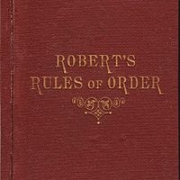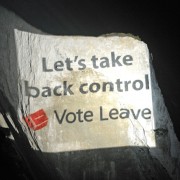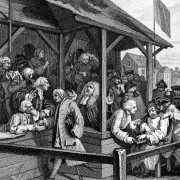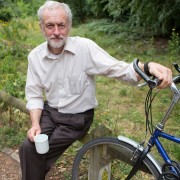MONTHLY BLOG 54, POST-ELECTION SPECIAL: ON LOSING? 1
If citing, please kindly acknowledge copyright © Penelope J. Corfield (2015)
Losing is not fun. That is, losing in a cause that means a lot to you, both intellectually and emotionally. In fact, it’s grim. Coping with defeat feels a bit like coping with a death. Again, there are deaths and deaths. Losing in a cause that means a lot feels very like coping with the unexpected death of someone close. So the first and unavoidable response is to grieve, rather grimly.
This BLOG arises from my personal feelings about Labour’s loss in Battersea at the General Election on 7 May 2015. It’s a short report, because grieving makes me feel distinctly brisk. For the record, we had a lively campaign. But we lost with a perceptible swing from Labour to the Conservatives, alongside a (predicted) heavy fall in Liberal Democrat votes, and a weak but not negligible showing for the Greens and UKIP.2
By the way, since the election I have attended a Wandsworth civic event where I bumped into Jane Ellison, Battersea’s Tory MP who was duly returned, and congratulated her. She was gracious (not hard when victorious but better than gloating). Jane Ellison also commented on the amount of venomous personal abuse that she had encountered via Twitter during the campaign. I was disgusted to hear that. I’d already heard of some personal abuse in the Twittersphere being directed at Will Martindale, the Labour candidate; and afterwards I learned that he too had received many unpleasant personal accusations, mostly made anonymously. That doubly depressing news made me feel even grimmer. It’s a tough baptism for all people in the public spotlight and especially tough on the electoral losers, who don’t have the consolation of victory at the polls. This half-hidden dimension to the electoral struggle made me appreciate yet again the dangers of anonymity and the civic advantages in open declarations of political allegiance, as was the norm in the pre-1872 practice of open voting.3
Anyway, after a public loss, the next task is to get on with all the business which follows. Clearing out the campaign headquarters comes high on the list. It’s a bit macabre but best done quickly. Undelivered leaflets seem especially sad, registering obsolete hopes. But it’s essential to keep an archive for our own record.
There’s also an amazing quantity of personal junk which accumulates in places where hundreds of strangers pop in to help. Lost umbrellas and bags are relatively explicable. But who leaves a vanity case with hundreds of lipsticks? Who leaves a sack of old clothing? Did some canvasser arrive fully dressed and leave starkers?
Perhaps it’s symbolic of rebirth after trauma? Certainly that would fit with the third stage, since, after grimly grieving and clearing the decks, it’s time for a major rethink. I now feel more brisk than grim. We’ve already had some meetings and more are planned, to assess what happened and where we should go next. Happily, large numbers have continued to attend. The feelings of outrage at the inequalities and unfairness of life in Battersea, which motivated many of Labour’s canvassers, have not gone away. And why would they? The extremes of wealth and poverty, side by side, remain stark. One of the Wandsworth foodbanks, run by dedicated volunteers in St Mark’s Church on Battersea Rise, helps a regular stream of desperate guests,4 while on the Thames riverfront a series of soulless ‘ghost towns’ of empty flats,5 held by absentee investors and potential money-launderers,6 mock the concept of community.
I have my own suggestion (in which I am not alone): I think that the Labour Party needs to update its language and its name. As part of that, I also favour a re-alliance of the progressive Left: Labour, plus Liberal Democrats, plus Greens. As it happens, the votes of all these parties would not have ousted the Conservative candidate from the Battersea seat. But the (re)birth of a progressive, redistributive, co-operative, green and libertarian centre-left is still the best long-term answer, for British political and cultural life as a whole. It has been much discussed over the years. But now’s the time, fellow Britons: political leaders and grass-roots alike. We should follow the pithy message from the Swedish-American Labour activist Joe Hill: ‘Don’t mourn; but organise’7 … with a new popular front.
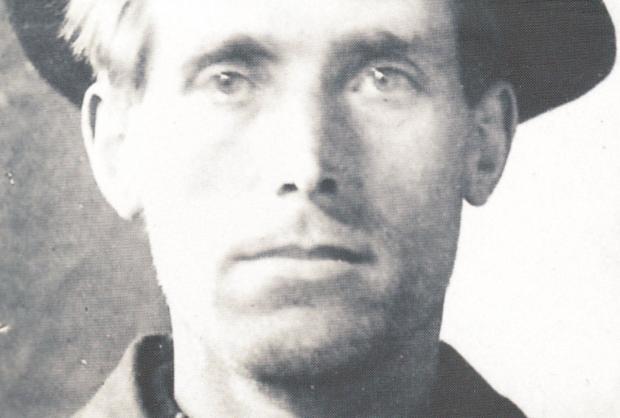
| Swedish-American Labour activist Joe Hill: don’t mourn but organise (song 1930). |
1 With comradely sympathy for Will Martindale (Battersea Labour candidate), Sean Lawless (BLP organiser) and the hundreds of Labour campaigners in the constituency.
2 Battersea’s votes, in a turnout of 67.1%, went to: Jane ELLISON (Conservative) 26,730 – up 5.0% from 2010; Will MARTINDALE (Labour) 18,792 – up 1.7%; Luke TAYLOR (LibDem) 2,241 – down 10.3%; Joe STUART (Green) 1,682; and Christopher HOWE (UKIP) 1,586.
3 But there were good reasons for adopting the secret ballot: see PJC, ‘What’s Wrong with the Old Practice of Open Voting? Standing Up to be Counted’ BLOG no 53 (May 2015).
4 Project seeded by the Trussell Trust: see www.wandsworth.foodbank.org.uk.
5 See Vauxhall Society (July 2013), www.vauxhallcivicsociety.org.uk/2013/07/: for viewpoint of Peter Rees, City of London chief planning officer, that under current redevelopment plans Vauxhall will be getting a ‘ghost town’ which would need no more than a ‘single-decker bus once an hour’, not the projected Northern Line [tube] Extension
6 Zoe Dare Hall, ‘Prime London and the Threat of Money Laundering’, 3 June 2015, in The London Magazine: reported in www.harrodsestates.com/news/361/prime-london.
7 Joel Hagglund, known as Joe Hill (1879-1915), hymned in ‘I dreamed I Saw Joe Hill Last Night’ (lyrics Alfred Hayes c.1930; music Earl Robinson 1936), a song especially loved by my father Tony Corfield, a lifelong activist in trade-unionism and adult education.
For further discussion, see Twitter
To read other discussion-points, please click here
To download Monthly Blog 54 please click here

